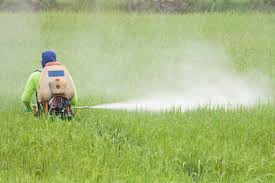New DOW Weedkiller Issues

Dow AgroSciences, which sells seeds and pesticides to farmers, made contradictory claims to different parts of the U.S. government about its latest herbicide. The Environmental Protection Agency just found out, and now wants to cancel Dow’s legal right to sell the product.
The herbicide, which the company calls Enlist Duo, is a mixture of two chemicals that farmers have used separately for many years: glyphosate (also known as Roundup) and 2,4-D. It’s Dow’s answer to the growing problem of weeds that are resistant to glyphosate, which has become the weed-killing weapon of choice for farmers across the country. The new formulation is intended to work hand-in-hand with a new generation of corn and soybean seeds that are genetically engineered to tolerate sprays of both herbicides.
When Dow applied for permission to sell Enlist Duo in 2011, it told the EPA that this mixture of glyphosate and 2,4-D is no more toxic than the two chemicals are, if considered separately. The EPA accepted that argument and approved the new herbicide just over a year ago. Dow began selling it, in small quantities, this year.
But the decision was controversial. Environmentalists argued that Enlist Duo would bring on a massive increase in herbicide use. Some farmers were concerned about the use of 2,4-D, because that chemical is known to blow into neighboring fields. Several environmental groups went to court to overturn the EPA decision, arguing that combining these two chemicals could result in new “synergistic” toxic effects that the EPA had ignored. And in the course of that litigation, the EPA discovered that Dow had been telling the U.S. Patent and Trademark Office a different story.
When applying for a patent, an inventor needs to show that something is novel and useful. And Dow’s patent application for Enlist Duo claims that this mixture of chemicals does, in fact, offer farmers something new: “synergistic herbicidal weed control.”

